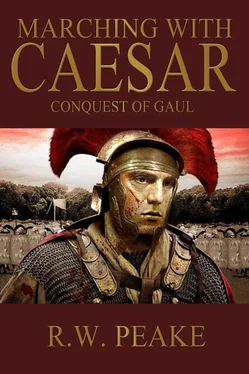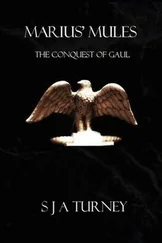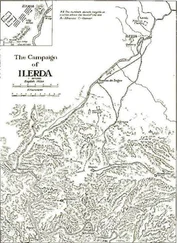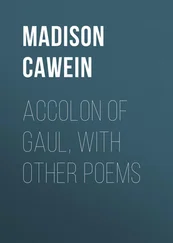R. Peake - Marching With Caesar - Conquest of Gaul
Здесь есть возможность читать онлайн «R. Peake - Marching With Caesar - Conquest of Gaul» весь текст электронной книги совершенно бесплатно (целиком полную версию без сокращений). В некоторых случаях можно слушать аудио, скачать через торрент в формате fb2 и присутствует краткое содержание. Жанр: Исторические приключения, на английском языке. Описание произведения, (предисловие) а так же отзывы посетителей доступны на портале библиотеки ЛибКат.
- Название:Marching With Caesar: Conquest of Gaul
- Автор:
- Жанр:
- Год:неизвестен
- ISBN:нет данных
- Рейтинг книги:3 / 5. Голосов: 1
-
Избранное:Добавить в избранное
- Отзывы:
-
Ваша оценка:
- 60
- 1
- 2
- 3
- 4
- 5
Marching With Caesar: Conquest of Gaul: краткое содержание, описание и аннотация
Предлагаем к чтению аннотацию, описание, краткое содержание или предисловие (зависит от того, что написал сам автор книги «Marching With Caesar: Conquest of Gaul»). Если вы не нашли необходимую информацию о книге — напишите в комментариях, мы постараемся отыскать её.
Marching With Caesar: Conquest of Gaul — читать онлайн бесплатно полную книгу (весь текст) целиком
Ниже представлен текст книги, разбитый по страницам. Система сохранения места последней прочитанной страницы, позволяет с удобством читать онлайн бесплатно книгу «Marching With Caesar: Conquest of Gaul», без необходимости каждый раз заново искать на чём Вы остановились. Поставьте закладку, и сможете в любой момент перейти на страницу, на которой закончили чтение.
Интервал:
Закладка:
This was the last time that the Britons tried to face us in open battle, their defeat being so resounding that the alliance of the tribes collapsed immediately, with men who traveled long distances to fight now simply turning about and going home. Those who survived, at any rate, since we slew a few thousand to be sure, yet we were most pleased to see we did a great deal of damage to the ranks of their charioteers, the shattered hulks of them scattered about serving as witness to our victory. Wasting no time burying the dead, we instead left them for the carrion birds and beasts to continue the march west, since Caesar did not want to lose the momentum our victory won for us. Our own losses were laughingly light; no more than a dozen dead among the two Legions, and a handful wounded. My section was never even put into rotation, so naturally we suffered no losses, although Atilius twisted an ankle on our pursuit stepping in a hole or something. He was much too embarrassed to go to have it looked at by the medici , since that meant he would have to be entered on the sick list, and I suppose he knew that the amount of teasing he would take far outweighed the benefit of any treatment the medici could provide. Passing through the killing fields from the first day, the only other sign of life besides the army were the birds circling overhead, waiting for us to leave. Not one solitary Briton was seen that day, or the next; it was not until our third day after the last battle that our patrols spied a small group of horsemen. What we did not know at the time was the political situation among the tribes, as Cassivellaunus fell back on the hit and run tactics that gave us so much trouble the first times we faced the Britons. The chariot reemerged as his preferred method of attack, but never again would we see hundreds of them like we did that day. Instead, there would be perhaps two or three in a group that suddenly burst out from the cover of the plentiful small forests and glades, darting in close so the warrior could hurl as many missiles as he carried with him, before dashing off with our cavalry in hot pursuit. Sometimes we caught them, but more often than not they would reach the cover of the woods, where our cavalry had already paid such a heavy price and only dared to enter in full force, penetrating less than a furlong into its depths. The ground was very flat, with what passed for hills only being perhaps a hundred feet or so high, meaning that progress was easily made, yet this was one time speed was not foremost in Caesar’s mind.
As we moved, we were given orders to send flanking parties ranging out farther than their normal mile or two, going three and four miles in either direction, perpendicular to our line of march. His intent was to find all sign of life, particularly in the form of flock and fields, Caesar’s purpose being twofold. One was to feed us, since an army of our size takes massive amounts of food and water to power, while the other, more strategic purpose, was to wreak havoc on the island and demonstrate the might of Rome, which we did with a vengeance. By this time we had developed a healthy dislike for the island and the people on it, partly due to the nature of our enemy, with their blue paint and chariots, but also because we came to believe that this island was truly cursed. How else to explain the storms that caught us not once, but twice and so devastated the fleet that we were forced to devote a good portion of the season just to repair the damage? Never before had we faced chariots, nor seen men with blue faces or white, spiked hair. However, perhaps the most compelling reason for such hatred among the ranks was due to those men we call the Druids, of whom I have not spoken of for a reason, nor do I intend to devote much time to now. It is enough to say that the entire army, myself included, saw the powerful magic that these men possessed. Setting aside their foul practices and despicable rites, to most of the men in the army they were considered the prime reason that this island of Britannia was, and is cursed even today. This is another reason why we took to our task of ravaging the land with such enthusiasm, thinking that anything we could do to hurt the Druids was a good thing for us in the long run. Our progress on each day’s march could be followed by the columns of black smoke marking the farmsteads and fields that we found, while our quartermasters were kept busy slaughtering all the livestock that we gathered up, though to be sure there was grumbling about the prevalence of meat in our diet compared to our daily bread. I was one of the few who did not complain, it being reminiscent of my childhood when Lucius had been such a sorry excuse for a farmer that he could not provide much for us other than what grazed on our farm. Still, I sat and pretended to be sympathetic as we sat around the fire, listening to the rest of my friends bemoaning the fact that not only was our bread in short supply, but our supply of olive oil was running low.
“Look at me, I’m wasting away,” Vellusius complained, pulling up his tunic to pinch the skin around his waist.
It was true that there was not very much there to grab, if there was any at all, yet he did not look to me like he was any lighter than he had ever been. But I was learning by this time that it is better to allow the men to complain about the small things such as this because if you put too much effort in trying to stop it, when they are complaining about really important or sensitive matters, your arsenal of tricks has been used up. So I contented myself by smiling sympathetically as the others picked up his complaint.
“I swear to Dis if I have to eat cow, or sheep, or anything else that was running around the day before, I’m going to……to….well, I don’t know what I’m going to do exactly, but it’s not going to be good,” Atilius pronounced, provoking more laughter than agreement.
“So, if it’s been dead more than a day, then it’s all right?” Vibius teased, prompting a rock to be thrown at him by Atilius, which instead bounced and hit Didius in the shin. “By the gods……”
“We know, Achilles, you’re going to gut us, and make us sorry,” Atilius cut him off, causing an eruption of laughter, which even Didius, while not exactly joining in, did not see fit to argue about, giving us a grimace that I guess passed as a smile for him.
This was about the fourth day of our march to the west, while we relaxed around the fire, knowing that the next day promised little more than much of the same. A sudden blaring of horns somewhere along the column, a burst of activity as the cavalry was summoned to the spot from where the ambush was launched, followed by the briefest of clashes before the Britons dissolved back into the woods to wait for another moment. The best we could hope for was that one of the chariots would be slow, either from one of the horses going lame, or the driver letting his mind wander. Only then would the men on foot have a chance to strike back, and it did happen occasionally, but more often than not all we had to show for our efforts was a Century or so of panting Legionaries and a couple of men wounded, or worse. We understood why Cassivellaunus adopted the tactics that he did, and I have no doubt that in his place most of us would have done the same. That did not mean we respected it however, and I have often wondered if he did what he did actually believing that he could wear us down in such a manner, or was it simply because he did not know what else to do?
On the sixth day of the march, we reached a river that is now called the Tamesis (Thames), and is one of the main waterways that the Britons use to carry the goods they acquire from the mainland deeper into the island. This river also marks the southern boundary of the territory of the tribe of Cassivellaunus, so it probably should not have surprised us to find him once again arrayed on the opposite bank, at the only fordable spot for several miles in each direction. Our cavalry had managed to round up a small number of prisoners who claimed to be deserters trying to go back to their own lands, having their fill of life with their army. They told our scouts that not only was this the only ford but submerged just below the water were a series of sharpened stakes, pointing outwards toward the middle of the river, designed to stop our assault across it. Since we were not the vanguard Legion this day, the task fell to the 9th to storm across the river, while we were ordered to ground our gear in place and draw up in formation in case our support was needed. Before we even made it to the riverbank to our designated spot, however, the affair was over. Caesar ordered the cavalry to dash across first, but the men of the 9th acted so swiftly in forming up for the assault that the effect was that a combined force of horse and men entered the river at the same time, despite the water being up to some of the men’s necks. Whatever courage they had mustered up that caused them to make this stand immediately deserted the Britons, all of them turning to flee, with the cavalry pursuing a short distance and inflicting some casualties. After retrieving our gear, both the 9th and 10th re-crossed the river and continued the pursuit.
Читать дальшеИнтервал:
Закладка:
Похожие книги на «Marching With Caesar: Conquest of Gaul»
Представляем Вашему вниманию похожие книги на «Marching With Caesar: Conquest of Gaul» списком для выбора. Мы отобрали схожую по названию и смыслу литературу в надежде предоставить читателям больше вариантов отыскать новые, интересные, ещё непрочитанные произведения.
Обсуждение, отзывы о книге «Marching With Caesar: Conquest of Gaul» и просто собственные мнения читателей. Оставьте ваши комментарии, напишите, что Вы думаете о произведении, его смысле или главных героях. Укажите что конкретно понравилось, а что нет, и почему Вы так считаете.












